







The Supreme Court Thursday asked the Centre to consider enhancing the monetary compensation and insurance cover of cadets who are medically boarded out after suffering varying degrees of disabilities during military training, and come up with a scheme for resettling those who had recovered.
A bench of Justices B V Nagarathna and P K Mishra, which had taken suo motu cognisance on August 18 of The Indian Express reports published on August 11, Thursday perused a status report filed by the government.
The bench said the monthly ex gratia amounts were fixed in 2017 and should be revised upward “particularly bearing in mind the current inflation”.
On August 18, the top court had also sought to know if the cadets had any medical insurance benefits. On Thursday, the top court said that ASG Aishwarya Bhati, appearing for the Centre, “pointed out that there is an insurance scheme in place under which compensation is provided in case of death or disablement…”
DRDO’s transfer of material technologies, IAF provides relief to landslide victims, joint military exercises to passing out parade of Indian Army, watch the video to know more.
बलिदानी सूबेदार भूपेंद्र सिंह चौहान को जनरल मुकेश चड्डा उल्लेखनीय सेवाओं के चलते तीन बार सम्मानित कर चुके है।
Bhupendra Singh Chauhan Martyr : कस्बे से राजस्थान के सटे गांव विजय नगर निवासी सूबेदार भूपेंद्र सिंह चौहान जम्मू-कश्मीर में बलिदान हो गये। 45 वर्षीय सूबेदार का पार्थिव शरीर कल मंगलवार को पैतृक गांव में पहुंचेगा। जवान के बलिदान की सूचना के बाद गांव में गमगीन माहौल बना हुआ है तथा लोगों सूचना पा कर शोक संतप्त परिवार को सांत्वना दे रहे है।
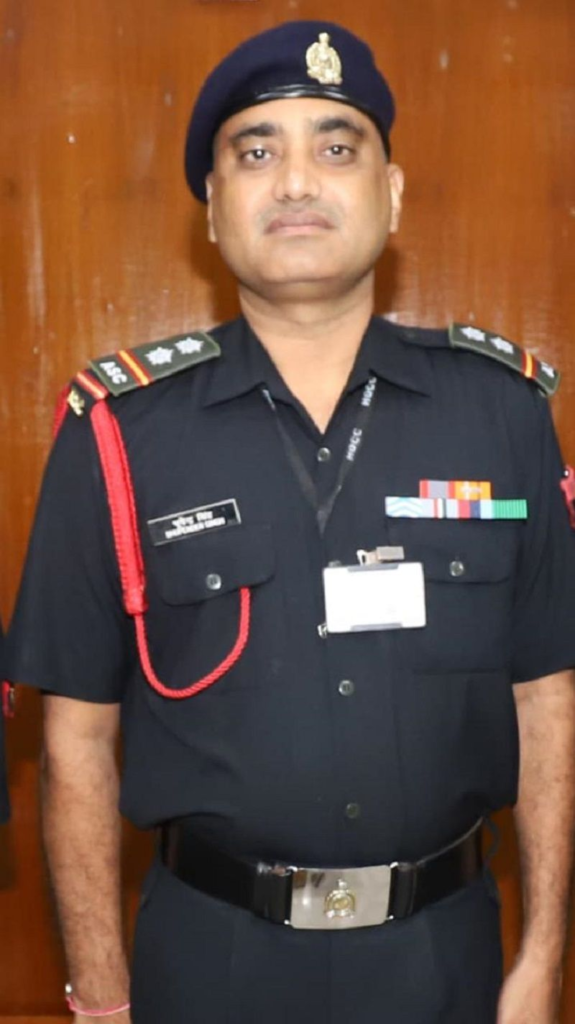
बलिदानी के पिता रामनिवास सिंह भी आर्मी मेें सूबेदार मेजर के पद से सेवानिवृत्त हुए थे उनका भाई महेेंद्र सिंह, भतीजा कैप्टन रामसिंह भी आर्मी में अपनी सेवा दे रहा है। बलिदानी को जनरल मुकेश चड्ढा उनकी उल्लेखनीय सेवाओं के चलते तीन बार सम्मानित भी कर चुके है।
अटेली कस्बे में रहने वाले बलिदानी के चाचा मनोज सिंह ने बताया कि उसका भतीजा भारतीय सेना में एएससी की 525 बटालियन में जम्मू-कश्मीर में तैनात था। जम्मू-कश्मीर के राजौरी-पुंछ में ड्यूटी के दौरान 7 सितंबर को बलिदान हो गये। वह अपने पीछे एक लड़का, एक लड़की,पत्नी,माता-पिता समेत भरा परिवार छोड़ गये है। उनके दादा दिवंगत ओमकवार सिंह गांव के नंबरदार रहे है।

बलिदानी का पार्थिव शरीर कल 9 सितंबर मंगलवार को सुबह 10 बजे पहुुंचेगा तथा सैनिक सम्मान के साथ अंतिम संस्कार होगा। सैनिक परिवार से ताल्लुक रखने वाला जवान बेंगलुरु में 2000 में भर्ती हुए थे तथा उनका विवाह 2003 में हुआ था। उनका बड़ा लड़का 11 वी में तथा छोटी लडक़ी पायल 11 वी में पढ़ती है। उनकी पत्नी भी सुशिक्षित एमए बीएड पास है।
India-European Union (EU) Security and Defence Cooperation meeting took place in New Delhi today. Co-chaired by Defence Secretary Shri Rajesh Kumar Singh and Chair of Political & Security Committee of EU Mrs Delphine Pronk, the meeting focused on capacity building, capability enhancement and emerging challenges.
The delegation, which is on its maiden visit to India, was also briefed on Information Fusion Centre-Indian Ocean Region. 🇮🇳
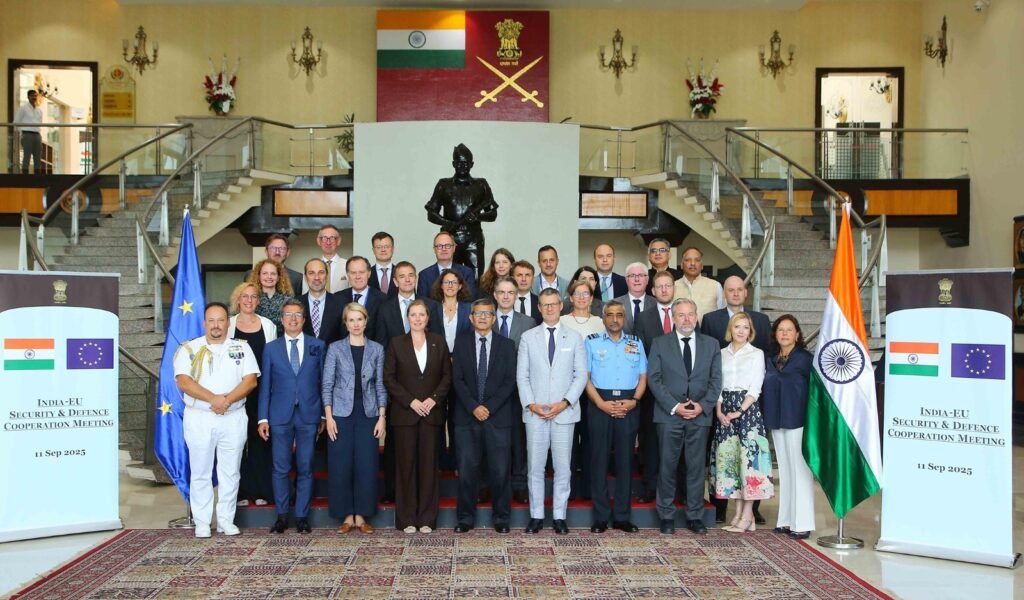
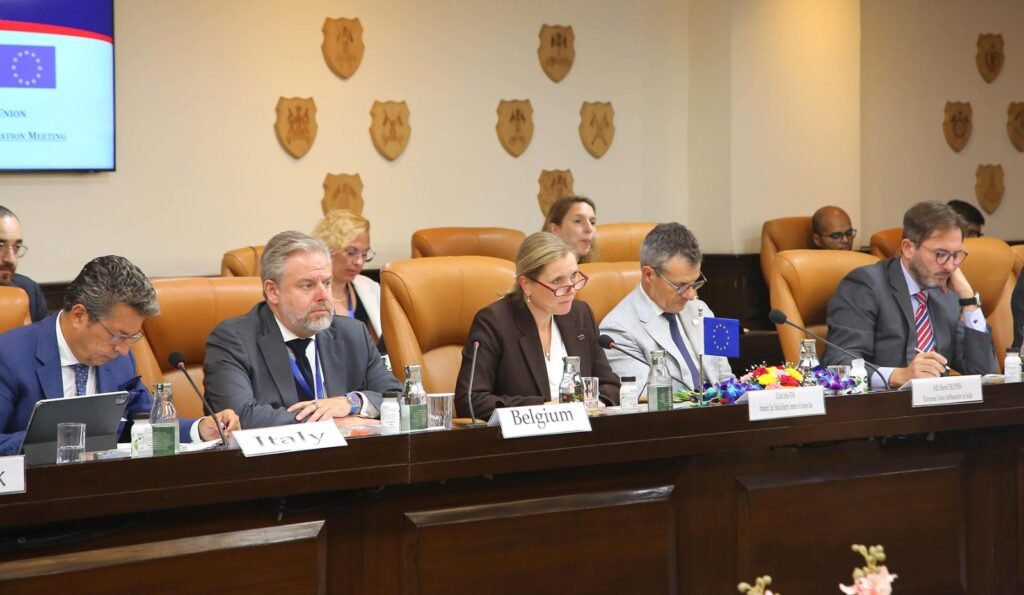
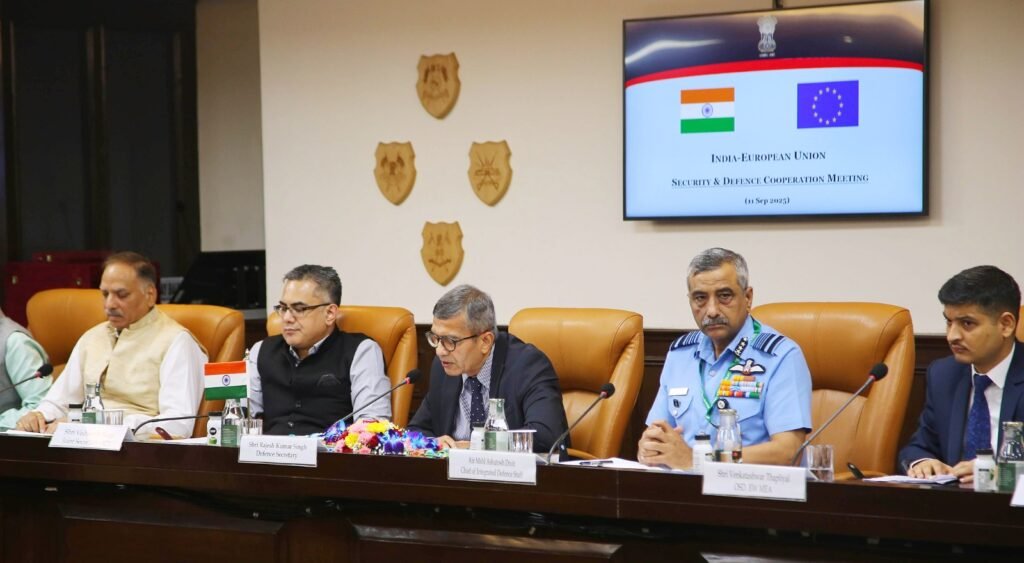
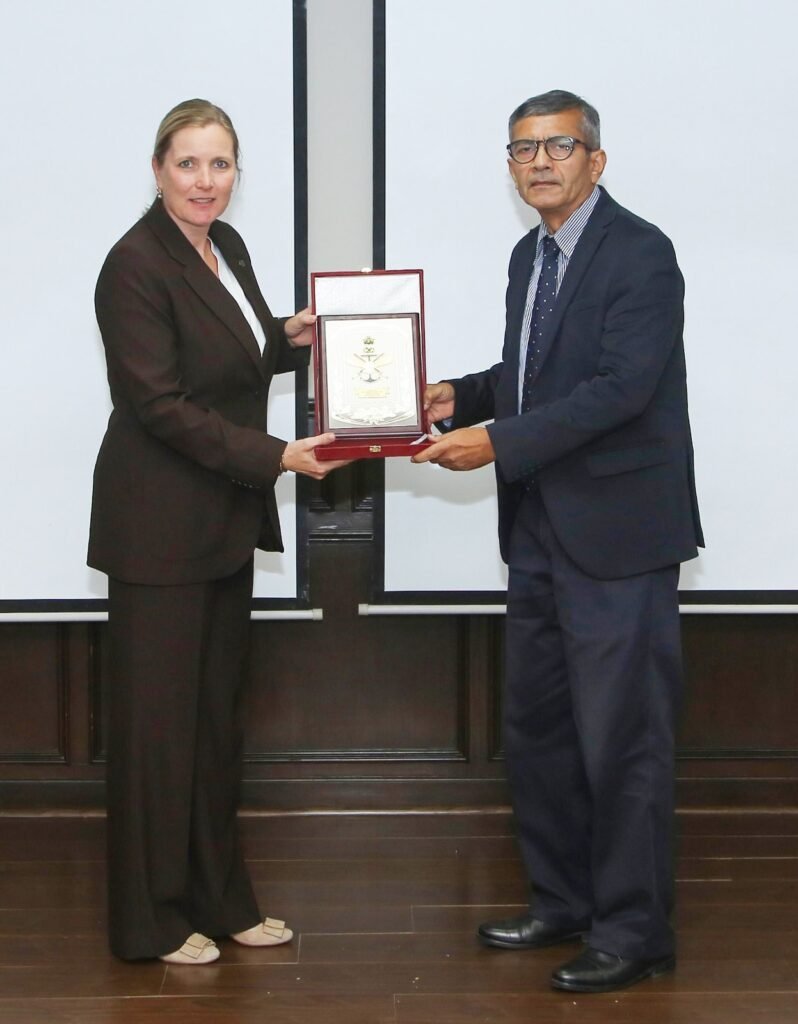
Lucknow: To enhance administrative efficiency and veteran we ..
Defence Secretary Shri Rajesh Kumar Singh visited Southern Command HQs in Pune and interacted with General Officer Commanding-in-Chief Lt Gen Dhiraj Seth. The discussions focused on operational preparedness, logistics, capability development and future challenges.
The Defence Secretary appreciated the innovation drive and tech infusion efforts of the Command aligned with Raksha Mantri Shri Rajnath Singh’s vision of a future ready and tech-enabled force. 🇮🇳
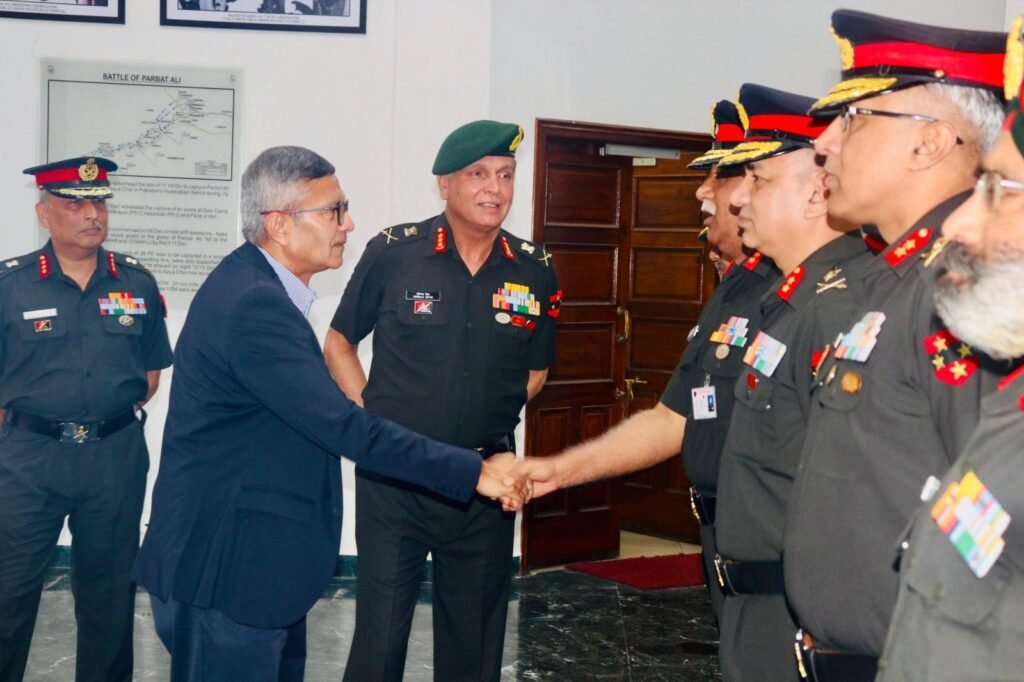
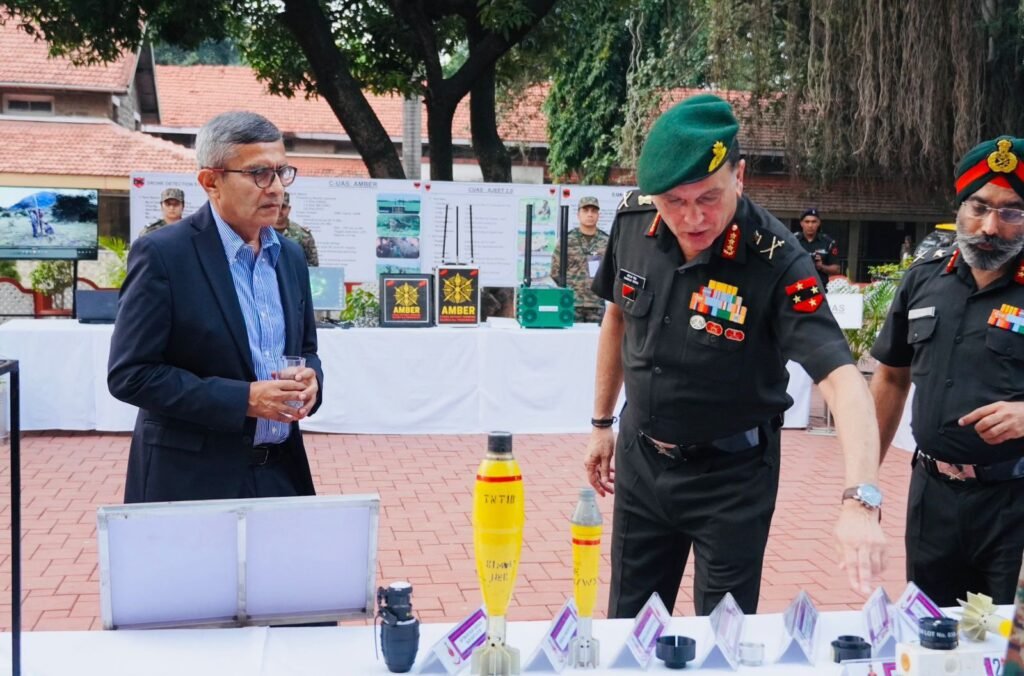
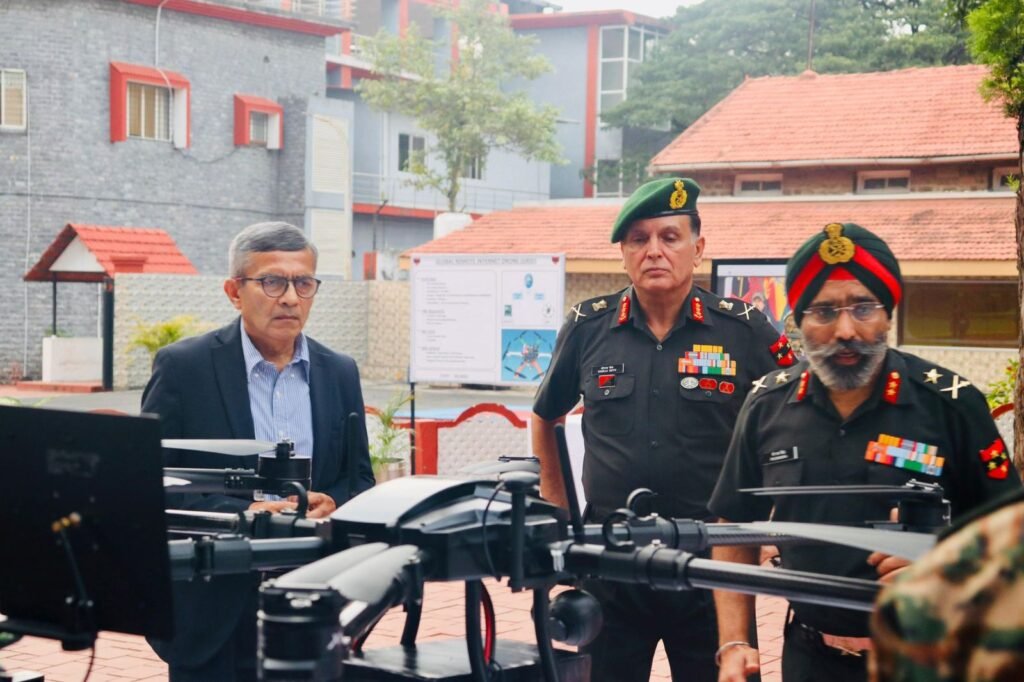
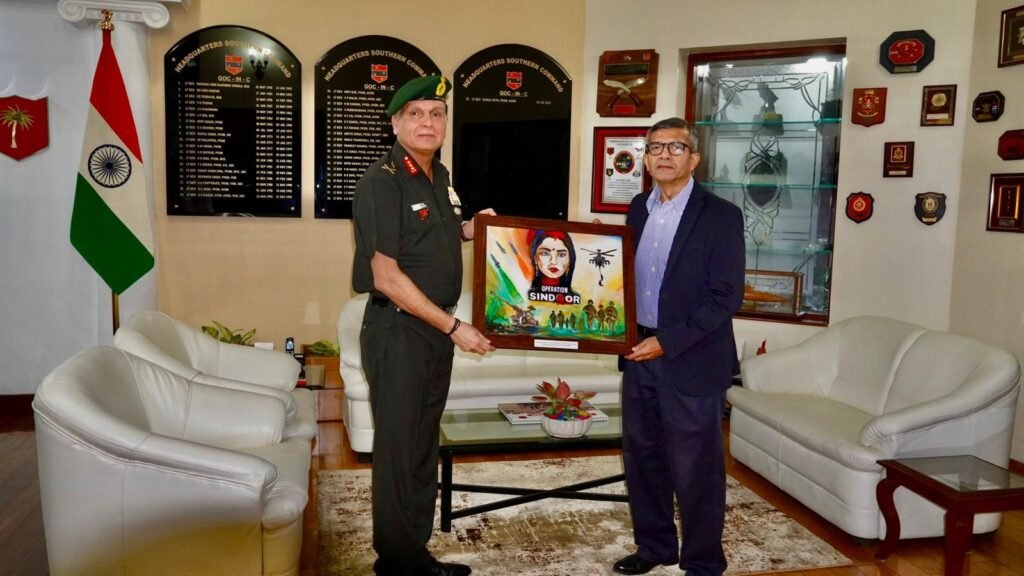
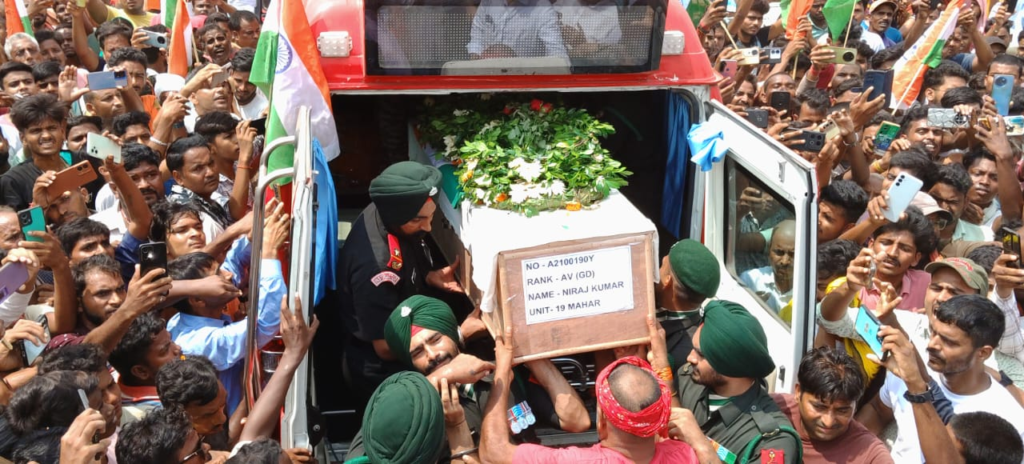
A tribute ceremony with full military honors was held in Village Kajra, Deoghar district, to honor Agniveer Niraj Kumar Chaudhary of the 19th Mahar Regiment. The young soldier, who demonstrated remarkable grit and dedication in his service, lost his life on September 9, 2025, due to an avalanche in the harsh environment of the Siachen Glacier.
The remains of Agniveer Niraj, draped in the national tricolor, were brought back to his village in a solemn procession. Emotional scenes unfolded as soldiers carried his flower-adorned coffin, while a large crowd of locals, holding Indian flags, paid their respects.
The gathering, which included villagers and military personnel, united to honor the heroism and sacrifice of the fallen soldier.
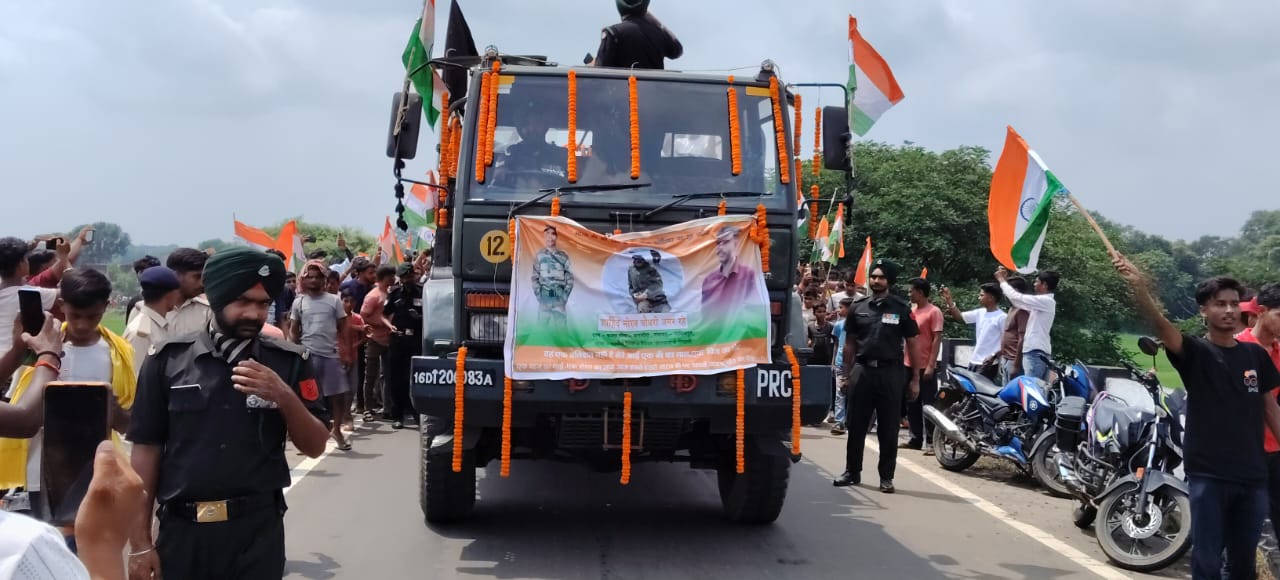
Two-and-a-half years ago, Agniveer Niraj joined the Indian Army under the Agnipath scheme. He served in one of the world’s most challenging terrains, showcasing unwavering duty commitment.
Niraj, coming from a modest farming family in Kajra village, was described by his father, Anil Chaudhary, as the family’s backbone. Although devastated by his loss, the family expressed immense pride in his national service.
During the tribute ceremony, honors included a guard of honor by his comrades, a rifle salute to show respect, and the presentation of the tricolor flag to his family as a symbol of the nation’s gratitude.
Military officials and local leaders praised him as an embodiment of duty, honor, and valor, stating that his sacrifice would inspire future generations.
The Siachen Glacier, referred to as the “world’s highest battlefield,” continues to test the endurance of India’s soldiers. Since 1984, 869 Army personnel have lost their lives there, mostly due to extreme weather and environmental conditions rather than combat.
Agniveer Niraj’s sacrifice highlights the ongoing challenges faced by soldiers defending India’s borders in some of the world’s harshest conditions.
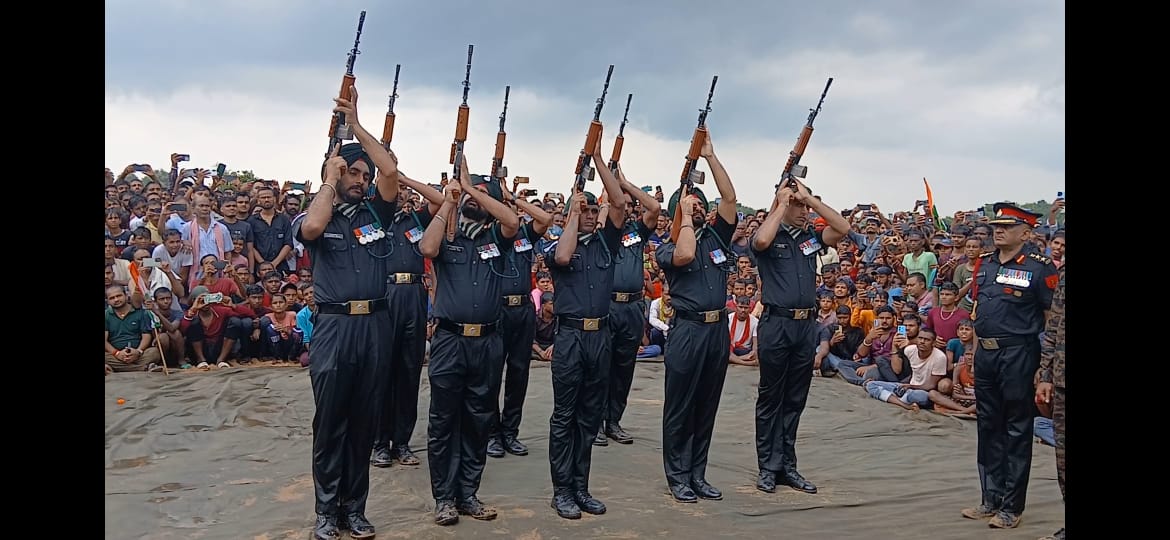
Earlier in the week, his remains were received at Birsa Munda Airport in Ranchi, where the Governor and Chief Minister of Jharkhand paid their last respects. They described his martyrdom as “heart-wrenching” and lauded his courage as emblematic of India’s indomitable spirit.
As Village Kajra bid farewell to its brave son, the entire nation mourned with them. Agniveer Niraj Kumar Chaudhary’s name is etched among India’s martyrs, symbolizing the bravery and dedication required to protect the nation’s borders.
His story is one of not only loss but enduring pride—a legacy that will continue to inspire future generations of warriors.
Upholds tribunal order granting 50% war injury pension to Army man

The Punjab and Haryana High Court has ruled that the Union of India cannot draw a distinction between injury and disease when both are suffered by Army personnel posted in an operational area. The assertion came as a Division Bench held that war injury pension could not be denied once a soldier was invalidated out of service due to disability attributable to military service.
Dismissing a writ petition filed by the Union of India against an order of the Armed Forces Tribunal, the Bench of Justice Harsimran Singh Sethi and Justice Vikas Suri made it clear that the very nature of posting in a counter-insurgency zone carried inherent risks, and any disability contracted therein must be treated as a war injury.
“Once, the disease/injury suffered by an officer invalidates him/her out of service, the differentiation being created by the petitioner-Union of India between a disease suffered or the injury incurred to deny the benefit of war injury pension cannot be allowed,” the Bench held.
The Court asserted that “Category E(i) of the Government of India letter dated January 31, 2001” made it clear that any operation specially notified by the Government from time to time must be treated as an “operational area”. Jammu and Kashmir, where the respondent was posted under Operation Rakshak, fell squarely within this category.
“It is a conceded position that respondent army man was posted under ‘Operation Rakshak’ in Jammu and Kashmir. Once, the eye disability had been suffered during performance of the duties in the said operational area, the benefit of war injury pension cannot be declined,” the Bench declared.
Upholding the order of the Armed Forces Tribunal granting 50 per cent war injury pension, the High Court asserted: “Once it has been conceded by the petitioners that the disease due to which respondent has been invalidated out of service is attributable to the military service as the same disease was suffered while being posted in the operational area, the benefit of war injury pension has rightly been granted.”
The Court found no perversity in the Tribunal’s order, either on facts or in law, and dismissed the writ petition. “No ground is made out to interfere in the order passed by the Tribunal and the present writ petition is dismissed accordingly,” the Bench concluded.
The Centre had argued that the respondent was posted in a counter-insurgency area, but the disability suffered Interstitial Keratitis –– a condition affecting the eyes —could not be equated to an “injury” sustained while conducting operations.
Rejecting the stand, the Court asserted that the counsel for the Union conceded that “any injury suffered by army personnel while he/she is posted in the operational area is to be treated as war injury.” The real issue, the Bench observed, was whether a disease contracted during such posting could be excluded from the definition of war injury.
“The question which surfaces is whether any disease also suffered during the operation which leads to the
invalidation of army personnel is to be treated as an injury suffered or not,” the Bench observed.
The Bench added the nature of invalidation —whether due to an “injury” or a “disease” — was irrelevant if the posting was in an operational area.
Upholding the order of the Armed Forces Tribunal granting 50 per cent war injury pension, the High Court asserted: “Once it has been conceded by the petitioners that the disease due to which respondent has been invalidated out of service is attributable to the military service as the same disease was suffered while being posted in the operational area, the benefit of war injury pension has rightly been granted to respondent by the Tribunal.”
The Court found no perversity in the Tribunal’s order, either on facts or in law, and dismissed the writ petition. “No ground is made out to interfere in the order passed by the Tribunal and the present writ petition is dismissed accordingly,” the Bench concluded.
The ruling shuts the door on the Union’s attempt to deny war injury pension by drawing a distinction between “injury” and “disease”. By holding that “any disability suffered in an operational area amounts to war injury”, the High Court has expanded protection for soldiers and reinforced that the “risk of invalidation in such zones is inseparable from service itself”.


























































